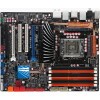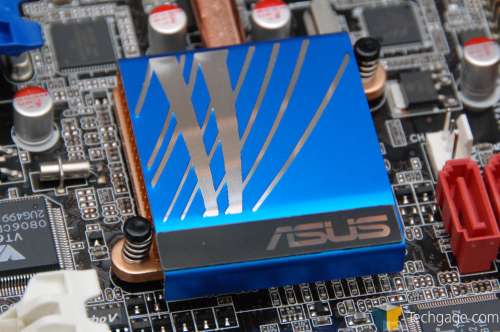- Qualcomm Launches Snapdragon 4 Gen 2 Mobile Platform
- AMD Launches Ryzen PRO 7000 Series Mobile & Desktop Platform
- Intel Launches Sleek Single-Slot Arc Pro A60 Workstation Graphics Card
- NVIDIA Announces Latest Ada Lovelace Additions: GeForce RTX 4060 Ti & RTX 4060
- Maxon Redshift With AMD Radeon GPU Rendering Support Now Available
ASUS P6T Deluxe OC Palm Edition

Need a solid motherboard offering for that brand-new Core i7 processor? ASUS’ first “mainstream” X58 board proves to be a true winner, offering a feature-packed and well-thought-out design, support for both CrossFireX and SLI, plentiful accessories and overclocking potential to keep even the most hardcore enthusiast pleased.
Page 9 – Power Consumption, Final Thoughts
It goes without saying that power efficiency is at the forefront of many consumers’ minds today, and for good reason. Whether you are trying to save money or the environment – or both – it’s good to know just how much effort certain vendors are putting into their products to help them excel in this area. ASUS and Gigabyte are two that immediately come to mind that have put a lot of R&D into this, and I’m sure with their leadership, power consumption will consistently get better.
To help see what kind of wattage a given motherboard eats on average, we use a Kill-A-Watt that’s plugged into a power bar that’s in turn plugged into one of the wall sockets, with the test system plugged directly into that. The monitor and other components are plugged into the other socket and is not connected to the Kill-A-Watt. For our system specifications, please refer to our methodology page.
To test, the computer is first boot up and left to sit at idle for five minutes, at which point the current wattage is recorded if stable. To test for full CPU load, eight instances of SP2004 are run using the Small FFT test, one for each thread. For our last test, four of those instances are closed while an “Extreme” run of 3DMark Vantage is performed, which would mimic usage of a game that makes heavy use of the CPU.

Not surprisingly, Intel’s DX58SO board consumed less power throughout all of our tests, but the differences at full load are much tighter than at idle. The increase in consumption on the ASUS board can likely be blamed for a few different reasons, but the fact that the board includes 18 power phases probably doesn’t help things too much.
Final Thoughts
Despite the fact that Core i7 just launched, the competition where motherboards are concerned is rather tight, with eight motherboards from five different manufacturers being immediately available, two being from ASUS. Though I can’t speak on behalf of all the launch boards, I have little doubt that the P6T Deluxe is a superb choice for your Core i7 build.
The first important factor is the price, which at $299, sits in line with all of the other launch boards. Like all of ASUS’ Deluxe boards, this one includes many features targeting both the consumer and enthusiast, in addition to a great design, huge peripheral connectivity abilities and overclocking potential that should please almost anyone.
The fact that the board handled our Core i7 920 stable at 3.60GHz is enough for my thumbs up. I didn’t expect to see that speed stable on that CPU at all, but it was possible here, and with stock voltages no less. Although the cost of entry into Core i7 isn’t going to be cheap to start off, the overclocking-ability exhibited here should appease some of the pain.
In the coming weeks, we’ll be delivering more X58-related reviews with boards from ASUS, Gigabyte and hopefully others, so stay tuned. As it stands though, ASUS did a superb job with their P6T Deluxe, and I can confidently recommend it to anyone who is looking to build an i7 machine and can’t decide amongst the launch lineup.
-
Pros
- Good performer.
- Excellent overclocker (180MHz stable Base Clock).
- Designed well, board layout is good.
- Supports both CrossFireX and SLI.
- Full-featured package.
-
Cons
- The price, though not unlike competition (~$299.99).
- OC Palm is a nice addition, but not everyone will opt for it.
Discuss this article in our forums!
Have a comment you wish to make on this article? Recommendations? Criticism? Feel free to head over to our related thread and put your words to our virtual paper! There is no requirement to register in order to respond to these threads, but it sure doesn’t hurt!
Support our efforts! With ad revenue at an all-time low for written websites, we're relying more than ever on reader support to help us continue putting so much effort into this type of content. You can support us by becoming a Patron, or by using our Amazon shopping affiliate links listed through our articles. Thanks for your support!






